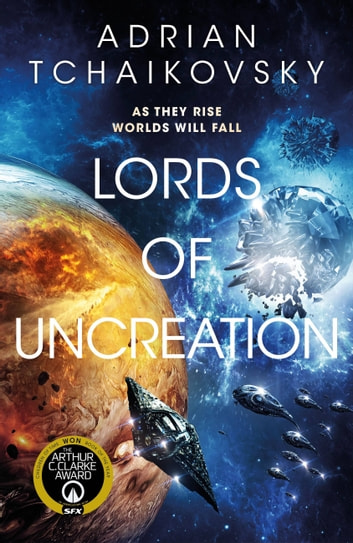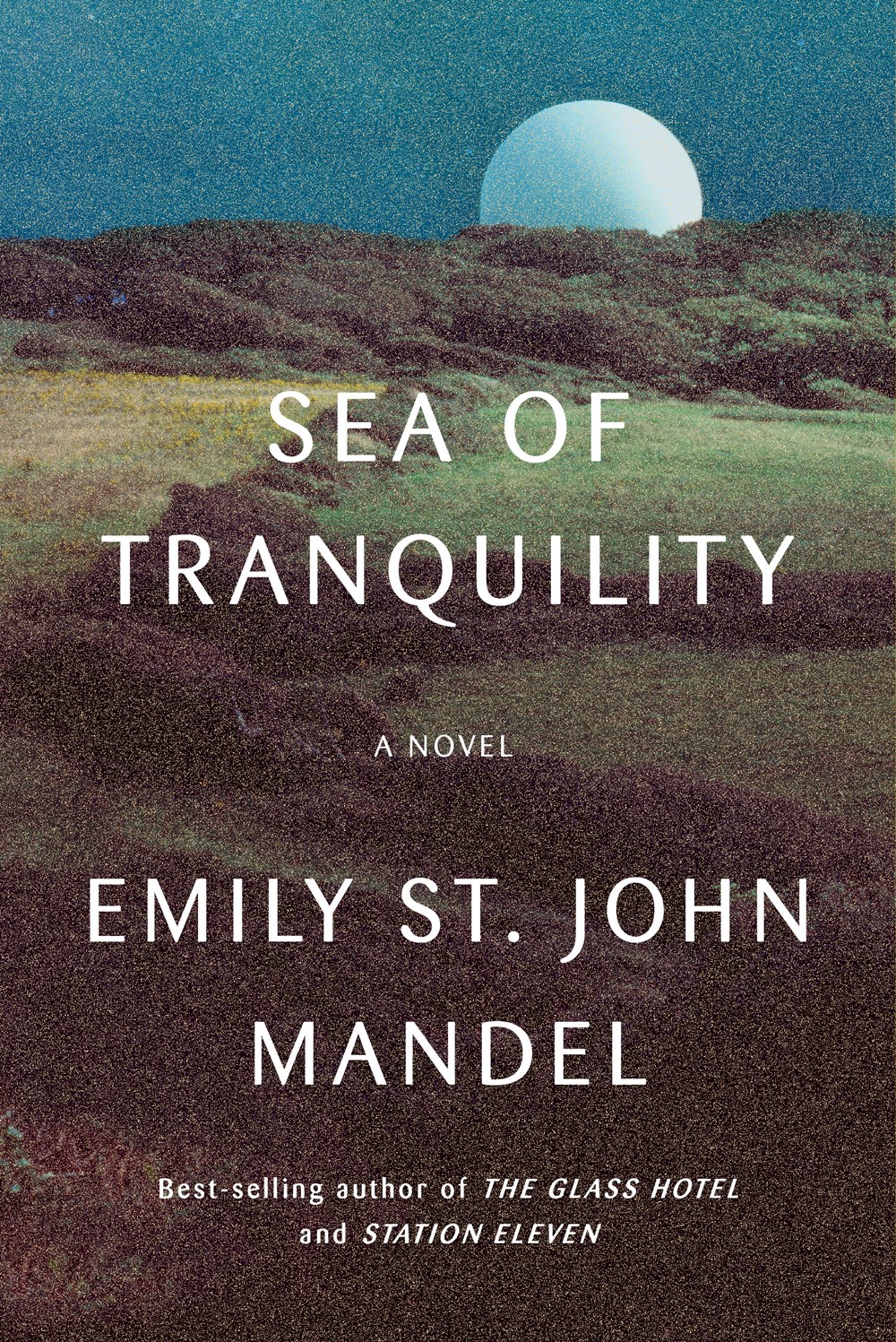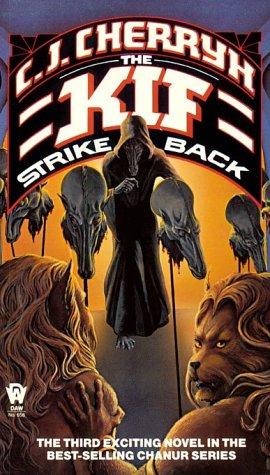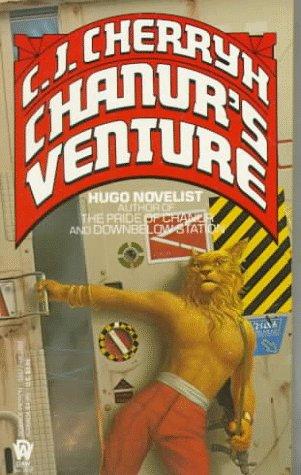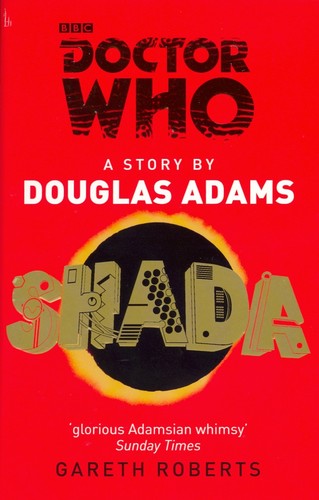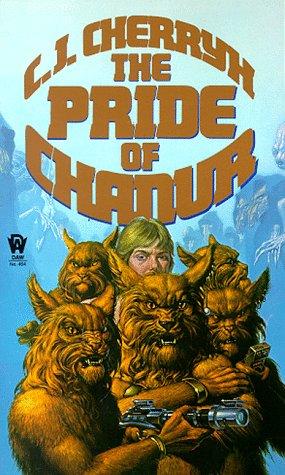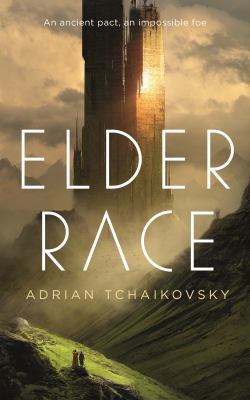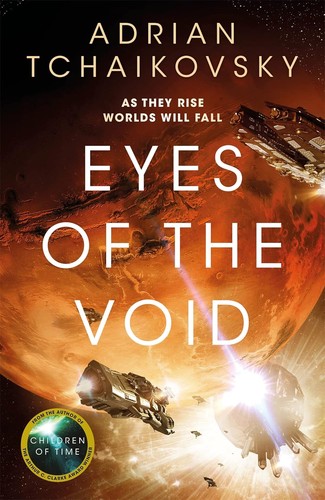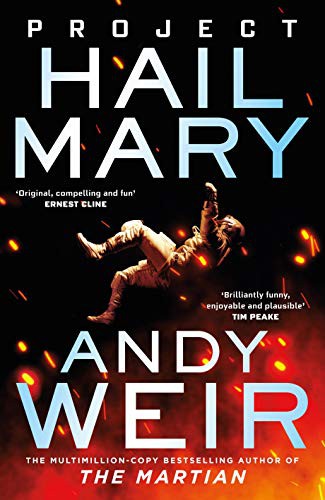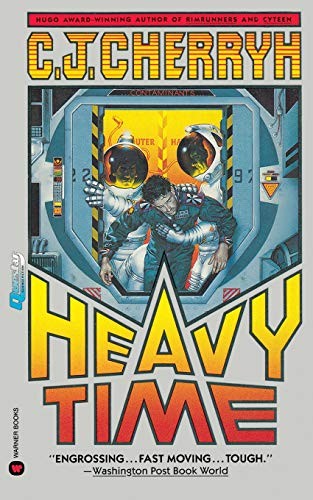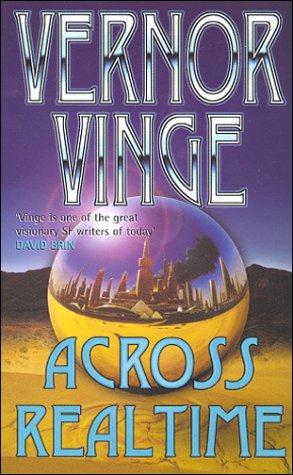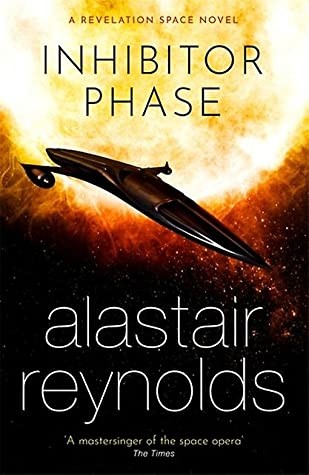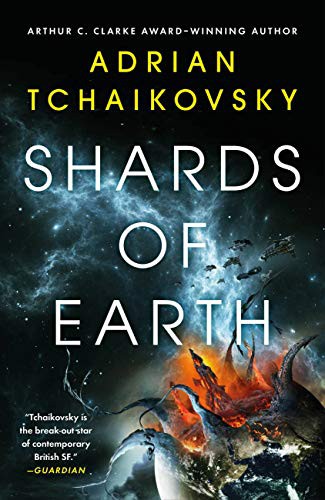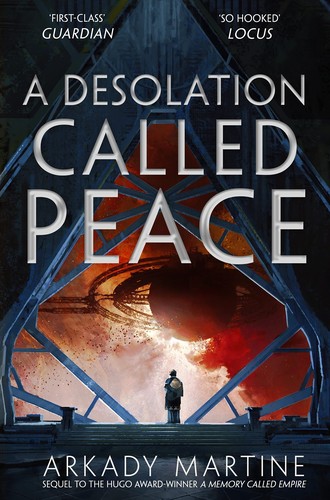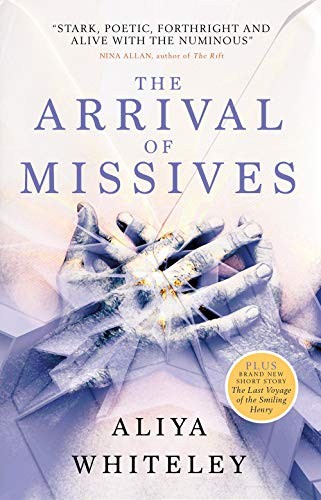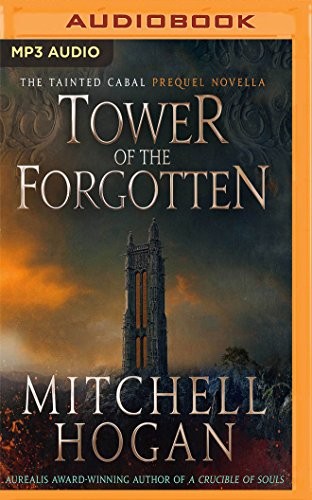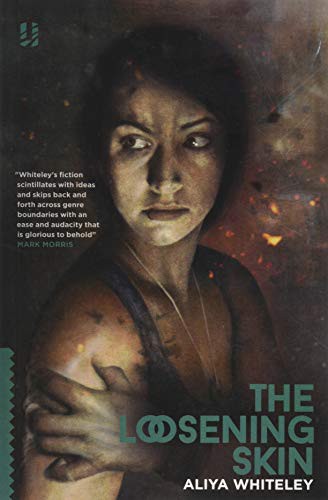Gave up. The amnesia/ suddenly remembering stuff as required really bugged me.
User Profile
I'm the author of the sf thriller Horizon. I'm also publisher at coeur de lion publishing and a past editor of Aurealis - Australian Science Fiction and Fantasy Magazine from 2001 to 2004. I hosted 30 episodes of the Terra Incognita Speculative Fiction Podcast, and edited and published Dimension6 the free Australian speculative fiction electronic magazine from 2014 to 2020.
This link opens in a pop-up window
Keith Stevenson's books
To Read (View all 44)
User Activity
RSS feed Back
Keith Stevenson reviewed Project Hail Mary by Andy Weir
Keith Stevenson reviewed Heavy Time by C.J. Cherryh
Review of 'Heavy Time' on 'Goodreads'
4 stars
The Klondike days of asteroid mining are long over and it's getting harder to make a living with the government and corporations slapping regulations over routes, assays, claims, flight certification. A lot of it the name of safety, but really it's all about Earth controlling the Belt and easing the freelancers out.
This might sound like something out of the Expanse, but it’s the premise for CJ Cherryh’s Heavy Time, the first prequel to her Hugo-winning Downbelow Station which - together with over twenty other Alliance-Union novels - charts a story of humanity’s future that spans multiple worlds and centuries of time.
James SA Corey acknowledged the debt the Expanse owes to Cherryh’s books in a recent Twitter exchange:
Are you a fan of CJ Cherryh? I’ve started reading her stuff and wondered if maybe she was an influence of yours. Spacers, stationers, and belters; interesting similarities there.
…
The Klondike days of asteroid mining are long over and it's getting harder to make a living with the government and corporations slapping regulations over routes, assays, claims, flight certification. A lot of it the name of safety, but really it's all about Earth controlling the Belt and easing the freelancers out.
This might sound like something out of the Expanse, but it’s the premise for CJ Cherryh’s Heavy Time, the first prequel to her Hugo-winning Downbelow Station which - together with over twenty other Alliance-Union novels - charts a story of humanity’s future that spans multiple worlds and centuries of time.
James SA Corey acknowledged the debt the Expanse owes to Cherryh’s books in a recent Twitter exchange:
Are you a fan of CJ Cherryh? I’ve started reading her stuff and wondered if maybe she was an influence of yours. Spacers, stationers, and belters; interesting similarities there.
— Curlygec (@Curlygec) January 27, 2022
Yup.
— James S.A. Corey (@JamesSACorey) January 27, 2022
And it’s easy to see the DNA of this book in The Expanse.
As a prequel, I suspect the set up for Heavy Time benefited from the research and worldbuilding Cherryh did while writing Downbelow Station, and the novel could have suffered from that legacy, leaning on that detail at the expense of plot and character. But in fact the opposite is true. Our knowledge is built out of the lived experience and the personal histories of the characters thrown together when two freelancers – Bird and Ben – rescue a fellow freelancer from a wrecked vessel far away from the usual spacelanes. What seems like a tragic accident turns out to be something much more sinister with all three spacers at odds with each other and the company which is trying to control the narrative and supress the truth.
Bird is an old-timer, playing the freelance game long enough to have watched the company slowly erode the rights and profits of belters and he’s seen how bad things get when the freelancers try to push back. Ben is a product of the company system. He thinks he’s smart enough to play them at their own game. Dekker is hopelessly lost, a rookie freelancer traumatised by the accident but desperate to find justice for his dead partner. And then there’s Meg and Sal, both with chequered pasts and links to subversive elements, who see Bird and Ben as potential meal tickets until things start getting very political and the whole situation spirals out of control.
Heavy Time is a masterclass both in demonstrating how to unfold detailed worldbuiding with the lightest of touches as well as how character propels plot.
Keith Stevenson rated The Sins of Our Fathers: 5 stars

The Sins of Our Fathers by James S.A. Corey (The Expanse)
HUGO AWARD WINNER FOR BEST SERIES
Through one of the gates, a colony stands alone. Their supplies are low. …
Keith Stevenson reviewed Across realtime by Vernor Vinge
Review of 'Across realtime' on 'Goodreads'
5 stars
In 1984, I read Vernor Vinge's Peace War when it was serialised in Analog Magazine. Years later elements of that story still stayed with me and - since this was the age of e-books - I decided to read it again. For obscure reasons, the novel and its follow up Marooned in Realtime were not available on any platform I cared to search, including Gollancz's own SF Gateway site (although his Zones of Thought series was readily available).
I would have given up, but it niggled at me, so I finally bit the bullet and bought a dead tree copy - the compendium Across Realtime. I'm glad I did.
Like the best science fiction, Across Realtime riffs off a simple idea: the bobbles. These are shiny spheres that are created by a bobble generator. They can be any size (depending on the power available) and they can last for …
In 1984, I read Vernor Vinge's Peace War when it was serialised in Analog Magazine. Years later elements of that story still stayed with me and - since this was the age of e-books - I decided to read it again. For obscure reasons, the novel and its follow up Marooned in Realtime were not available on any platform I cared to search, including Gollancz's own SF Gateway site (although his Zones of Thought series was readily available).
I would have given up, but it niggled at me, so I finally bit the bullet and bought a dead tree copy - the compendium Across Realtime. I'm glad I did.
Like the best science fiction, Across Realtime riffs off a simple idea: the bobbles. These are shiny spheres that are created by a bobble generator. They can be any size (depending on the power available) and they can last for any period of time, from milliseconds to millenia. Inside the bobble, time stops. Complete and perfect stasis. The exterior of the bobble is indestructible. Drop it into the sun and the contents remain intact (until or unless the bobble bursts, of course).
The fact that even the bobble creators are unaware of some of the bobbles' more amazing properties leads to some excellent turnarounds in the first book The Peace War, but in both books, the existence of bobble technology is only a starting point. The books extrapolate on many different practical applications for the bobbles, which drive the narrative and action in unexpected directions.
The Peace War focuses on the period 5o years after bobble technology emerged and those who owned it - the Peacers - bobbled every government and military installation on the planet and declared themselves rules 'for the good of all others'. In effect it's a not-so-benevolent dictatorship against which the general population begins to strain, particularly the Tinkers who dabble on the fringes of what is now forbidden technology (because the Peacers are jealous of their monopoly on the creation and control of bobbles). Marooned in Realtime jumps millions of years past the end of the first book to the last remnants of humanity attempting to rebuild civilisation at the far end of time - and the practical applications of bobbles multiply with the benefits of advanced tech to create a dizzying story of survival and conflict.
Vinge's other great strength is worldbuilding, and both novels are greatly enhanced by the fully-formed and complex worlds he has created. Written almost 40 years ago, the books stand up well as thought-provoking pieces of entertainment
Keith Stevenson reviewed Inhibitor Phase by Alastair Reynolds (The Inhibitor Sequence, #4)
Review of 'Inhibitor Phase' on 'Goodreads'
3 stars
As one of Alastair Reynolds's more sarcastic characters, such as Scorpio the Hyperpig - or Triumvir Ilia Volyova - might say, 'you don't read Alastair Reynolds for the breakneck, frenetic pacing.' His dialogue also tends towards the wordy. But you do read Alastair Reynolds for the jaw-dropping concepts.
In the case of Inhibitor Phase, the title promises to bring some kind of significant event - or maybe even a denouement - to this cosmic scourge, which is a huge drawcard. The Inhibitors emerged as the main protagonists of Reynolds's Revelation Space Trilogy, sort of like souped-up versions of Fred Saberhagen's Berserkers or the Doomsday Machine from the Star Trek TOS episode of the same name.
The story starts promisingly enough with an unexpected visitor to a colony in hiding from the Inhibitor machines and a tense negotiation for one of the colonists to take a trip to find a …
As one of Alastair Reynolds's more sarcastic characters, such as Scorpio the Hyperpig - or Triumvir Ilia Volyova - might say, 'you don't read Alastair Reynolds for the breakneck, frenetic pacing.' His dialogue also tends towards the wordy. But you do read Alastair Reynolds for the jaw-dropping concepts.
In the case of Inhibitor Phase, the title promises to bring some kind of significant event - or maybe even a denouement - to this cosmic scourge, which is a huge drawcard. The Inhibitors emerged as the main protagonists of Reynolds's Revelation Space Trilogy, sort of like souped-up versions of Fred Saberhagen's Berserkers or the Doomsday Machine from the Star Trek TOS episode of the same name.
The story starts promisingly enough with an unexpected visitor to a colony in hiding from the Inhibitor machines and a tense negotiation for one of the colonists to take a trip to find a possible weapon against them. There's also a nice 'memory story' that is returned to frequently by one of the characters when they enter hypersleep, which is very entertaining (and more action-packed).
The main story then settles into a sort of 'greatest hits' tour where the ship visits places and people familiar to readers of the original trilogy and has a bit of a run in with the Inhibitors on the way. But after that, the assembled group of travellers moves to another familiar planet and the clear and present threat from the Inhibitors falls to zero, which - coupled with the aforementioned lack of pace - means the story is robbed of all tension. There are also a hell of a lot of coincidences that multiply to the point where you'd think the galaxy was no larger that a small English village. The main characters can't cough without running into an old acquaintance or a vital piece of information to help them find the maguffin that will - possibly - stop the Inhibitors.
They reach their destination and the descriptive passages get more and more detailed, slowing the plot even further until - finally - it's over. But if you thought it would deliver something definitive about the Inhibitor Phase, you'd be mistaken. This is not the end. It's not even the beginning of the end, but it may be etc. etc. There are some really fantastic ideas here. You just need to put up with the prose.
Keith Stevenson reviewed Leviathan Falls by James S.A. Corey
Review of 'Leviathan Falls' on 'Goodreads'
5 stars
A fitting ending to a fantastic series. Read them all.
Keith Stevenson rated Shards of Earth: 5 stars
Keith Stevenson rated The End of Everything: 5 stars
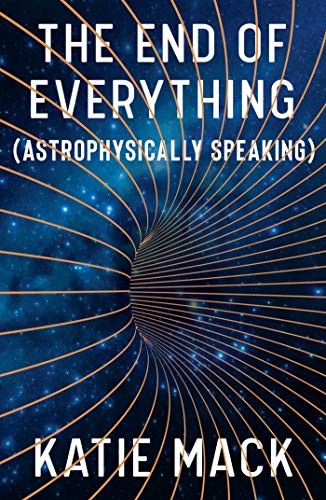
The End of Everything by Katie Mack
From one of the most dynamic rising stars in astrophysics, an accessible and eye-opening look—in the bestselling tradition of Sean …
Keith Stevenson reviewed Desolation Called Peace by Arkady Martine (Teixcalaan book 2)
Review of 'Desolation Called Peace' on 'Goodreads'
5 stars
I loved A Memory Called Empire but I think A Desolation Called Peace is even better. Empire did have some slow spots, particularly in the middle where I felt it dragged a little. But Peace is all killer no filler. Get it now!
Keith Stevenson reviewed Revenant Winds by Mitchell Hogan
Review of 'Revenant Winds' on 'Goodreads'
4 stars
Huge fun in this adventure set in Mitch Hogan's fantasy world of Wiraya. An unlikely group of mercenaries and church enforcers come together to save a village from a monstrous threat and discover what ancient secrets lie in the nearby caves. Deception, old rivalries and hidden agendas among the group - plus the threat of the legendary and evil Tainted Cabal - make for a fast-paced story where you're never sure what's going to happen next.
Huge fun in this adventure set in Mitch Hogan's fantasy world of Wiraya. An unlikely group of mercenaries and church enforcers come together to save a village from a monstrous threat and discover what ancient secrets lie in the nearby caves. Deception, old rivalries and hidden agendas among the group - plus the threat of the legendary and evil Tainted Cabal - make for a fast-paced story where you're never sure what's going to happen next.
Keith Stevenson reviewed The Arrival of Missives by Aliya Whiteley
Review of 'The Arrival of Missives' on 'Goodreads'
Beautifully written and with a plucky hero in Shirley Fearn, The Arrival of Missives takes the feel of classic children's/YA novels of the 60s, 70s and 80s - think Alan Garner and Susan Cooper - and gives it a fresh twist.
Beautifully written and with a plucky hero in Shirley Fearn, The Arrival of Missives takes the feel of classic children's/YA novels of the 60s, 70s and 80s - think Alan Garner and Susan Cooper - and gives it a fresh twist.
Keith Stevenson reviewed Tower of the Forgotten by Oliver Wyman
Keith Stevenson rated The Scar: 3 stars
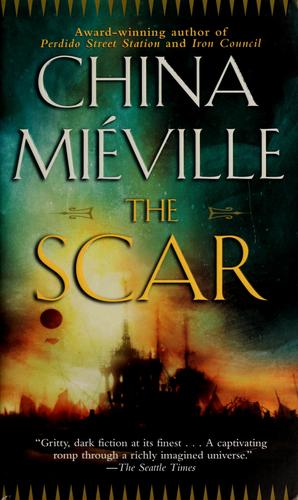
The Scar by China Miéville
A mythmaker of the highest order, China Mieville has emblazoned the fantasy novel with fresh language, startling images, and stunning …
Keith Stevenson reviewed The Loosening Skin by Aliya Whiteley
Review of 'Loosening Skin' on 'Goodreads'
4 stars
A great idea beautifully written. Though I'm still not sure about the point of view change at the two-thirds mark to a far less sympathetic character - and from that point on the narrative doesn't really enhance what the earlier part achieved in exploring the book's themes.
A great idea beautifully written. Though I'm still not sure about the point of view change at the two-thirds mark to a far less sympathetic character - and from that point on the narrative doesn't really enhance what the earlier part achieved in exploring the book's themes.
